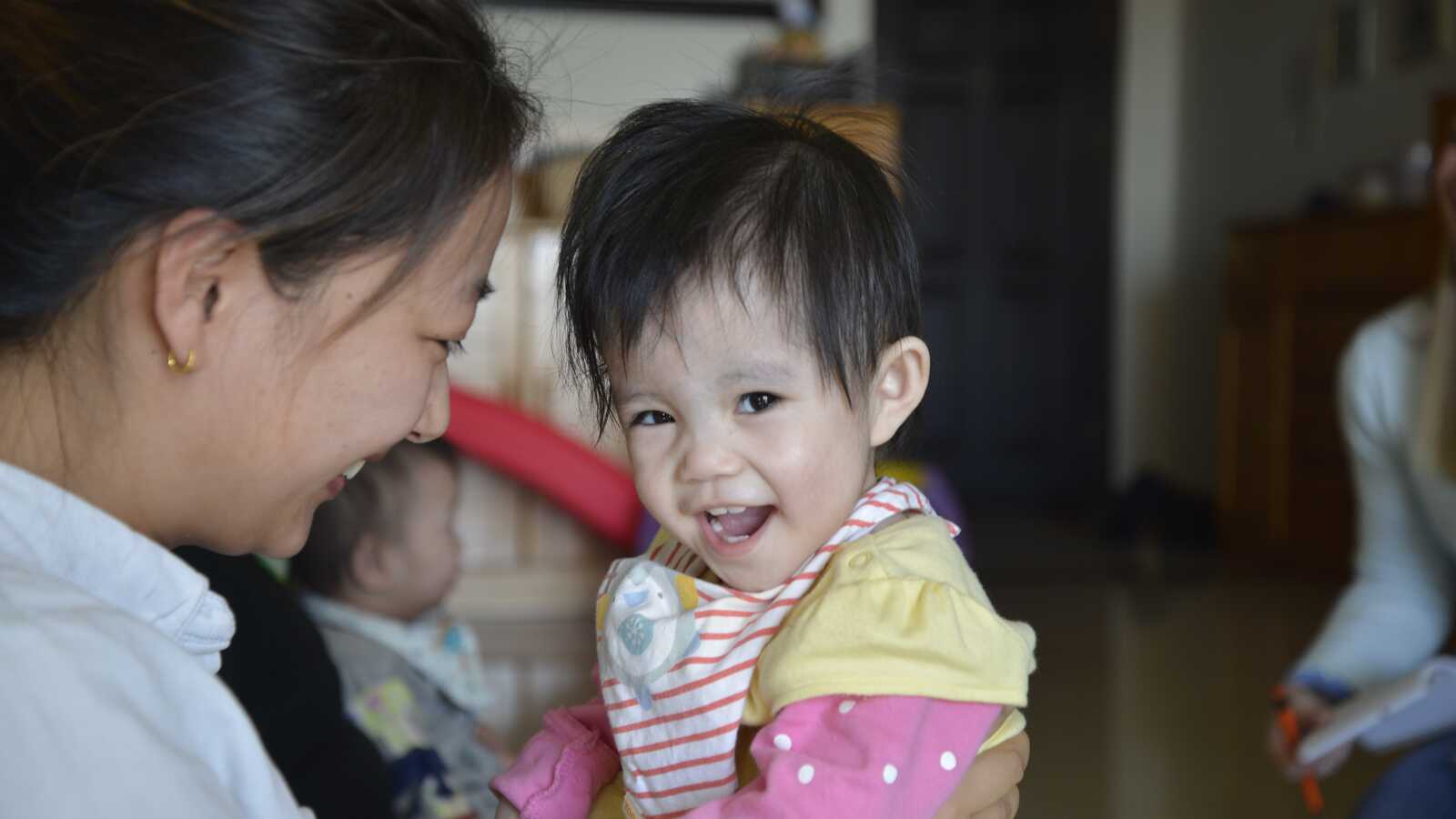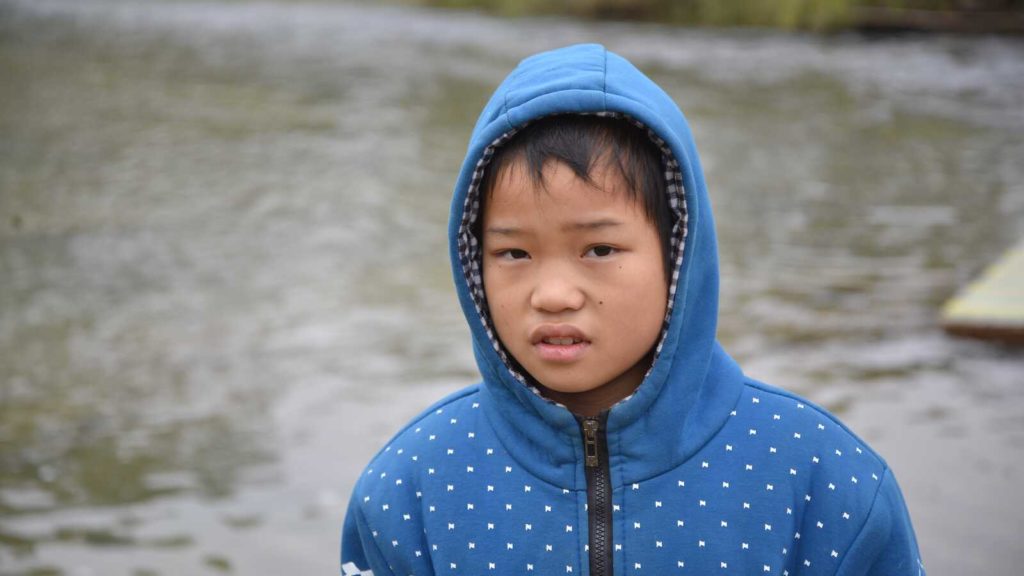
China
Caring for orphaned and vulnerable children in China since 1992 through child sponsorship and donations
On This Page:
Every year, sponsors and donors provide life-changing support for over 47,000 children and families in China.
Over the past two decades, rapid development in China’s urban centers has lifted millions of people out of poverty. But in rural communities, some children and families continue to live on less than $1.90 per day. Out of desperation, young people living in rural villages often migrate to cities in search of work — leaving children behind in the care of elderly relatives. Working alongside the Chinese government, and with the support of sponsors and donors, Holt strives to ensure that children can thrive in their families and that children growing up without a family have the resources and support they need to reach their potential.
Millions of children are growing up without their parents
Holt donors provide education and social work support so children can thrive in the care of their grandparents or relatives.
Children with special medical needs require specialized care
Holt’s donor-funded medical foster home provides nurturing, medically trained care for children before and after surgery.
Children living in orphanages struggle to thrive
Through Holt’s specialized caregiver trainings, children in orphanages experience better health and nutrition.

Help Children & Families in China
In China, many children are living in poverty and don’t have the resources needed to support their education. And children living in orphanages with special needs don’t have the specialized medical care they need. Your gift will help a child or family in China in greatest need.
Family Strengthening
Helping Children and Families Thrive in China
In China, Holt’s family strengthening programs focus on education to lift children and families out of poverty. Child sponsors and donors provide the critical support needed to help children attend school for as long as possible — creating generational change for thousands of families.
Education
Education in China is free and compulsory until the ninth grade, but families still face a lot of costs to educate their children. These include books, uniforms, supplies and “supplementary” classroom costs. Many families also live in rural or mountainous areas without access to a nearby school. For these families, their only option is to pay room and board for their child to attend a boarding school far from home. Collectively, these fees can overwhelm families living in poverty and cause children to drop out of school early. But across China, Holt sponsors and donors help cover school fees for children living in poverty with their families.
Within each province where Holt works in China, our local staff also partners with teachers, schools and local ministry of education officials to ensure children receive additional support and advocacy in and out of the classroom. Through home visits and regular meetings, advocates inform families about the importance of education, find ways for children to remain in school longer, help with exam prep, provide links to tutoring resources and more. With the support of sponsors and donors, advocates also work to ensure safe living conditions, medical care and good nutrition for children in educational sponsorship.
Following the ninth grade in China, students either go on to high school or attend a vocational school with the support of their sponsors. In some cases, donors also support children who perform so well on exams that they gain admittance to college.
Nutrition & Health
Many children in Holt’s programs in China have experienced hunger or malnutrition. Some families live exclusively on rice and vegetables from their gardens, with very limited protein in their diet. Often, children living in poverty miss meals and don’t get the vital nutrition they need. Holt sponsors and donors help provide food staples for families — ensuring children are well nourished and growing at a healthy rate.
Medical care is also costly to families living in poverty in China. As a result, many families will avoid seeing a doctor — taking risks that could potentially become deadly for themselves or their children. Holt sponsors and donors help alleviate the risk of serious illness by covering medical fees for children. Every child in Holt’s China programs also has access to emergency medical care.
Caring for China’s “Left Behind” Children
In China, millions of children are growing up without their parents — left behind in rural villages in the care of elderly grandparents or relatives who struggle to provide for them on their own meager resources. In some cases, parents leave their children when they divorce or when they remarry. But most parents leave because of poverty, migrating to cities in search of work. Although some parents try to bring their children, often the costs to live in the city are too great.
Most children don’t grow up completely alone. But even if they stay behind with grandparents, for many children, being left behind also often means being left in charge. Not only do they not receive the care they need, they end up being caregivers for their younger siblings and elderly grandparents. They cook, they clean, they watch after their siblings. They do everything that a parent would do.
In 2018, Holt began a program in China’s Jilin province to help address this crisis of “left behind children.” To help these children, our team in China began training and building up a local network of support for them — of teachers and villagers, of “aunts and uncles,” who would look out for them. With backing from the government, our social work team taught child welfare workers how to identify children in need, how to conduct a home visit and how to determine what kind of support children needed. They learned to look at whether the children’s grandparents had the ability to appropriately care for them, whether the children had relatives who could step in and help, and whether the family had sufficient income to care for the children. They also looked at whether the children were enrolled in school and who around the children could provide additional support when they needed it.
By training local child welfare workers to build a network of support for these children, Holt social workers have helped many more children than they could help individually. Sponsors and donors support this effort by providing the vital resources for these kinds of social worker services. For children in greatest need, they also help directly provide nutrition, medical care and education.
Today, Holt continues to collaborate with provincial level authorities to oversee this important and growing program!
Orphan & Vulnerable Children Care
Caring for China’s Most Vulnerable Children
In China, many orphaned and vulnerable children have medical or developmental special needs. Holt sponsors and donors help provide the resources these vulnerable children need to reach their potential — from medical care and therapy to specialized training for their caregivers.
Group Homes
In China, Holt sponsors and donors support group homes that provide a more familial atmosphere for children growing up without families. Some group homes provide specialized care for children with special needs, including for children with HIV — a disease so stigmatized and misunderstood in China that children with the condition are unwelcome in schools and even orphanages. Group homes give children who are HIV+ a sense of family, a safe and supportive environment and the opportunity to attend school.
Every month, the group plans movie nights, bicycle rides, barbecues and other types of social activities since people with HIV are often excluded from mainstream society.
With the support of sponsors and donors, children receive the best possible medical, emotional and educational support as well as activities to strengthen their development.
Nutrition & Health
Children living in orphanages are far more vulnerable to malnutrition and hunger-related diseases — especially children with medical and developmental needs. That’s why Holt developed our child nutrition program (CNP) for orphaned and vulnerable children around the world. In China, we work to equip caregivers in our partnering orphanages with the tools and training they need to strengthen their nutrition and feeding practices. Caregivers learn how to track the growth of children in care to ensure their growth and development is on track. They learn how to safely and comfortably feed children with special needs, and they make basic dietary changes that have a significant impact on the children’s health and well-being. Since the CNP team trained caregivers in China, our partnering orphanages have fully implemented the program — creating institutional changes that will benefit generations of children to come.
Adoption in Birth Country
Since 2015, Holt has helped complete over 600 homestudies for children in the domestic adoption process in China.
At Holt, we believe that every child should grow up in a loving, permanent family. We also believe that children should have the opportunity to grow up in the country and culture of their birth. That’s why, everywhere we work, we advocate for children to join adoptive families in their birth country before considering international adoption for them. Formal domestic adoption is relatively new in Chinese society, but Holt has long been a leader in promoting the practice — and today, many children are able to join adoptive families in China.
Although Holt does not operate as a domestic placing agency within China, Holt’s team in China works with local governments to perform homestudy assessments for families adopting domestically. We also provide orphanage trainings on how to do homestudy assessments — and why they are necessary.
Peace House
In 2011, Holt began overseeing a special medical foster home called “Peace House” for children in orphanage care who are in need of critical medical procedures. Located in the northern city of Tianjin, Peace House provides children with pre- and post-operative care, and matches each child with a medically trained caregiver who supplies one-on-one, round-the-clock care. The dedicated care children receive at Peace House helps them grow strong enough for surgery. Post surgery, they return to Peace House to recover and heal. Many children who stay at Peace House are able to join domestic adoptive families in China.